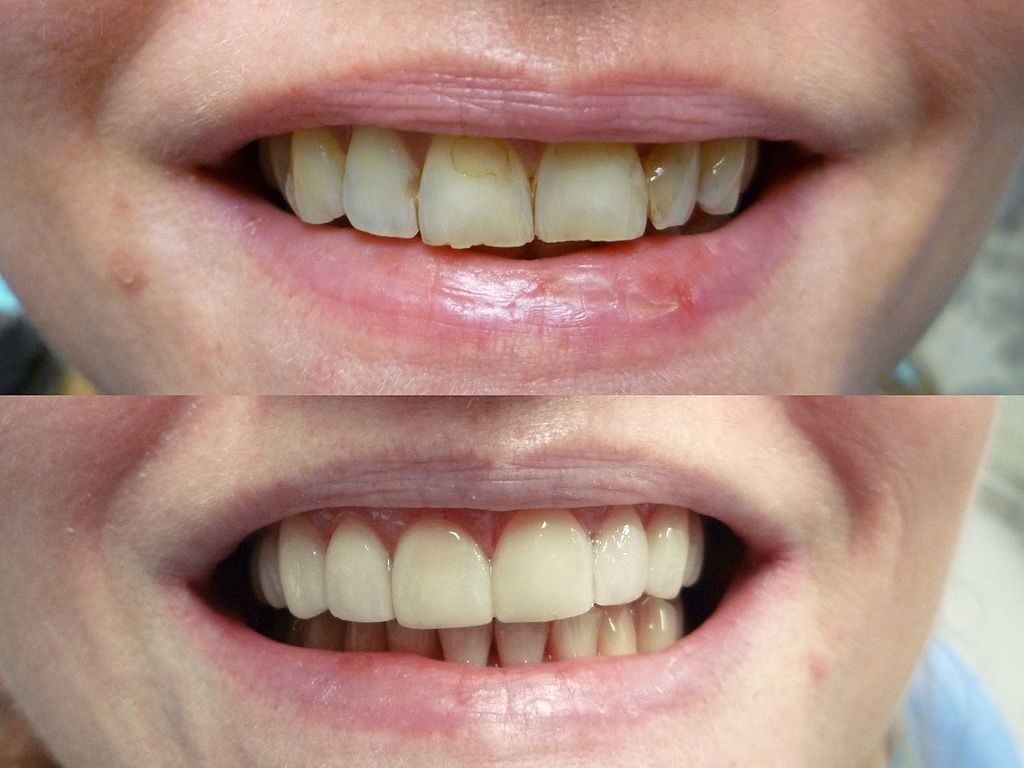Porcelain Dental Veneers, in Brighton, Queensland
Have you ever seen one of those makeovers shows on TV when the participant’s crooked, discoloured or uneven teeth are seemingly replaced overnight with a glowing Hollywood-style smile? It’s not camera trickery, and they have not replaced everything with implants, which can take several weeks. You can be almost sure that they have applied either porcelain or, more likely, composite resin veneers. It is a process that can be completed in just one or two consultations and delivers impressive results.
When Do You Need Veneers?
We aim to be your go-to dentist for dental veneers in Brisbane. Veneers are ideal when you have minor but noticeable imperfections in your teeth. These might include chips, gaps, discolouration or inconsistencies in size.
Veneers present an effective, comparatively quick, cost-effective alternative when imperfections like these are minor and do not warrant more time-consuming and costly processes such as crowns or orthodontic treatments.

Different Types of Veneers
Put simply; a veneer is an outer layer that the dentist fits over your existing tooth. Veneer dentists use two different types of veneers. A porcelain veneer is like a shell that is bonded to the tooth. It is conceptually similar to false nails fitted over real ones, except that veneers are fitted permanently. Porcelain veneers are custom-made to fit perfectly and provide a natural yet even look. They will last for 10 years or more with proper care and maintenance. They are ideal for uneven, gapped, damaged or discoloured teeth.
The other option is composite resin veneers. These are made differently by applying a unique material to the tooth and then sculpting it to cover imperfections and give teeth an even, gap-free, glowing appearance.
Sculpting composite veneers onto your teeth can typically be done in one visit. The process is quick, and composites are less expensive than porcelain veneers. Composite resin is also very hard-wearing; having said that, porcelain veneers are even stronger and more durable. While composite resin veneers should last between five and seven years, the porcelain alternatives can last twice as long. Porcelain veneers are also impossible to beat from an aesthetic perspective. They are translucent, mimicking real tooth enamel and do not stain.
On the other hand, you will have to wait a little longer for porcelain veneers while they are sculpted in the lab, so multiple visits will be involved.
Having Veneers Fitted
The first step is booking a consultation with a dental veneer specialist. During this first visit, the dentist will learn from you what you want to achieve and assess your teeth and gums to offer some objective advice on the available treatment options.
Note that you might need some other treatment before the fitting of veneers can occur. For example, suppose there is any sign of infection in a tooth. In that case, this must be resolved before the dentist even thinks about cosmetic dentistry work, including fitting veneers.
As well as performing a detailed physical examination, your dentist will also take x-rays. A dentist for veneers will then be able to run through some treatment suggestions. When you and the dentist agree that veneers are the best solution, it is then a matter of deciding on porcelain or composite.
In preparing your teeth for veneers, your cosmetic dentist will remove some of the enamel from the tooth’s surface. The idea here is to ensure your teeth are still the same overall thickness with the veneers fitted so they look natural and even.
Then, in the case of porcelain veneers, the dentist will take impressions that will be sent to the lab so they can make the veneers. When it comes to fitting them, the dentist will use a potent bonding agent and a high-intensity light that helps them harden quickly.
Whichever type of veneer you opt for, the dentist for veneers will carefully check your bite and make sure you are entirely comfortable and at ease with your new veneers.
Looking After Your Veneers
Of course, accidents can happen, and veneers can chip or break, a little like false nails. If that happens, book an appointment with the dentist immediately so that the damage can be resolved before it worsens.
Schedule Your Appointment
Common FAQ Questions for Veneers
How Long Do Veneers Last?
This depends on the type of veneers and how well you look after them. If you follow a good dental hygiene routine and have regular check-ups with your dentist, composite veneers should last five to seven years. Porcelain veneers can last 10 years or longer.
Are Tooth Veneers a Good Idea?
Do Veneers Hurt?
Most patients report no pain or discomfort when having veneers fitted, as the process is only minimally invasive. The bonding process can occasionally trigger some sensitivity but is usually only minor. As with any dental procedure, you should always tell the dentist immediately if you experience any pain or significant discomfort, and they will provide anaesthesia at once.
How Much Does it Cost to Get Dental Veneers in Brighton?
We believe in providing our patients with personalized care and helping them make informed decisions about their dental health. Our dentists can work with you to develop a treatment plan that meets your unique needs and fits within your budget.
Do Veneers Stay White?
Porcelain veneers do not stain, so they are like a permanent whitening treatment! Composite veneers are also highly resistant to staining, more so than natural teeth, but as they are more porous, they can lose their brilliant white lustre over time.
